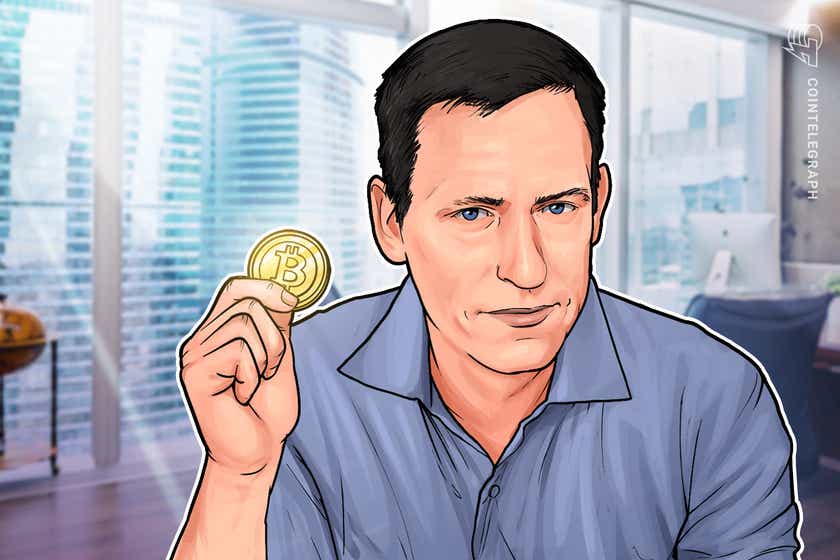PayPal co-founder Peter Thiel says he ‘underinvested’ in Bitcoin

Billionaire Peter Thiel shared concerns that investing in Bitcoin is already a “known secret.”
As Bitcoin (BTC) marked a new all-time high above $67,000, PayPal co-founder and billionaire venture capitalist Peter Thiel said he should have bought more Bitcoin.
Thiel spoke of cryptocurrencies, central banks and artificial intelligence during an interview in Miami hosted by policy think tank Lincoln Network, Bloomberg reported on Wednesday.
“You’re supposed to just buy Bitcoin,” Thiel said, adding, “I feel like I’ve been underinvested in it.”
The tech investor noted that his only concern about buying Bitcoin was that the investment “secret was already known by everybody.” “I think the answers are still to go long. Maybe it still is enough of a secret,” he added.
According to Thiel, the latest Bitcoin rally is definitely a big concern for global central banks. The cryptocurrency’s surge to its new historical highs “surely tells us that we are at a complete bankruptcy moment for the central banks,” Thiel stated.
In the interview, Thiel also criticized AI as an opponent to crypto’s force for decentralization. “AI, especially the sort of low-tech, surveillance form, is essentially communist,” he said, adding that AI is a technology that is “going to destroy the world.”
Related: Bitcoin briefly flippens Swiss franc after rally to new ATH
Thiel is one of the most vocal proponents of Bitcoin, claiming that Bitcoin succeeded as currency in 2014. The venture capitalist is also known for calling Bitcoin “a hedge against the whole world falling apart.” Earlier this year, the venture capitalist warned that the Chinese central government may be supporting Bitcoin as a means to undermine the foreign and monetary policy of the United States.
PayPal, which Thiel co-founded back in 1998, has been moving into crypto over the past year. The company officially announced its plans to introduce the ability to buy and sell cryptocurrencies like Bitcoin last October. PayPal has since rolled out crypto services in the U.S. and the United Kingdom.



